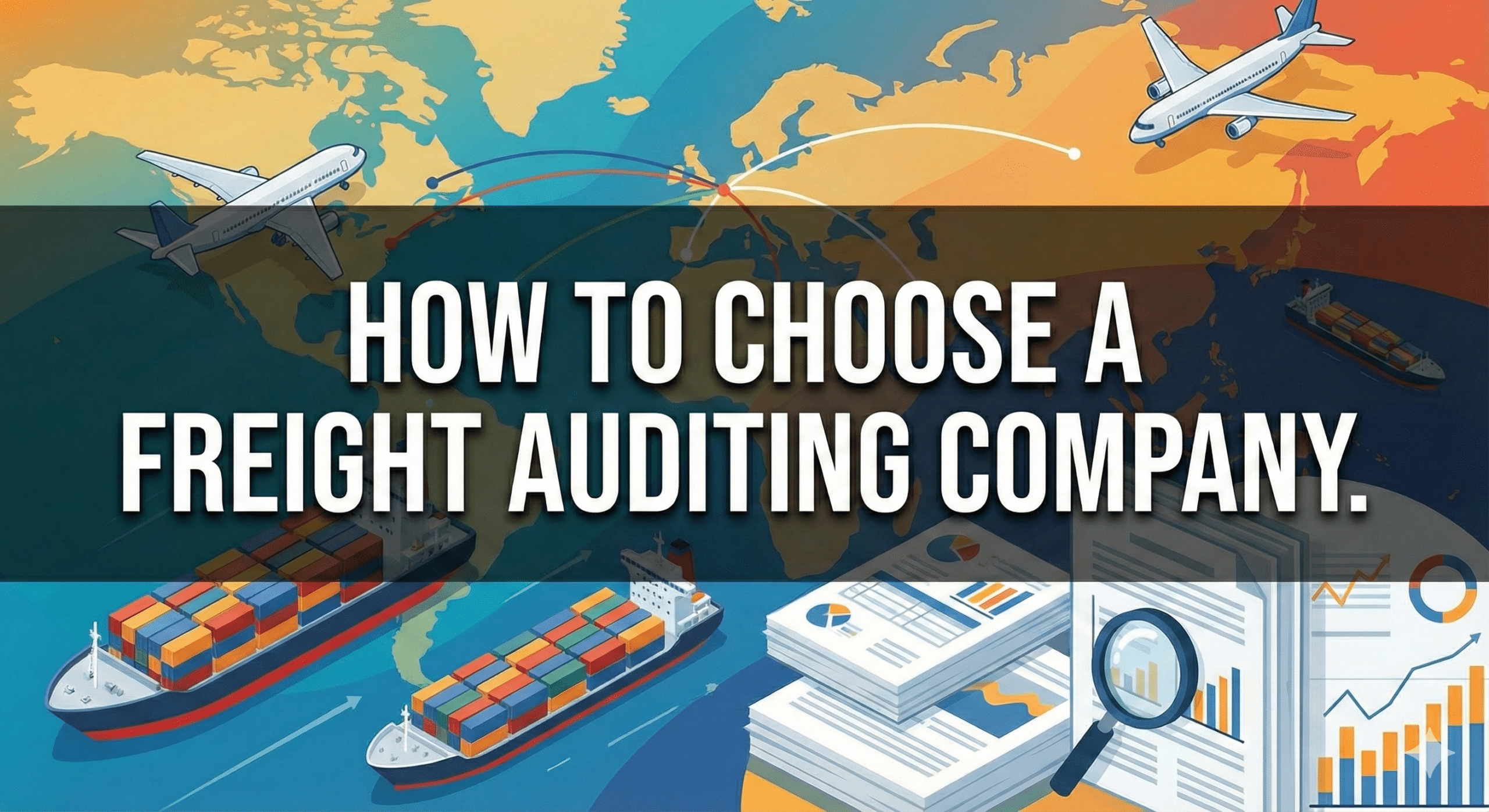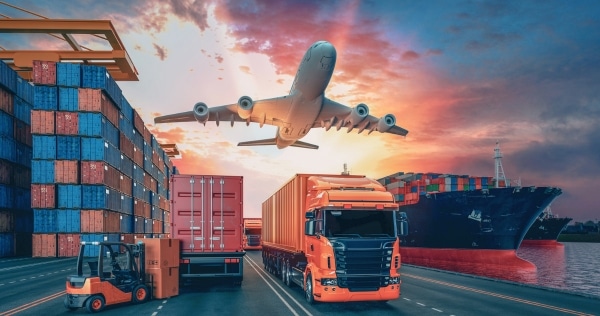Accessorial charges are additional fees applied by freight carriers for services that go beyond standard pickup and delivery, such as packing, unloading, or storage. These fees cover the extra time, labor, and equipment needed to complete a shipment and can significantly inflate your shipping costs if left unmanaged.
Shipping is a complex process that has a lot of moving parts. Unfortunately, this means your shipping costs may vary–especially if you’re charged for additional services by your carrier.
If your freight invoice is higher than you expected, you might have been charged an accessorial fee. Fortunately, there are ways you can avoid these fees and keep costs down.
In this article, we’ll help you understand what accessorial charges are, why they’re showing up on your freight invoices, and how to minimize them.
Key Takeaways
- Accessorial charges in freight shipping are additional fees for services beyond standard pickup and delivery, which can add unexpected charges to your invoices.
- Common types of accessorial fees include detention fees, layover fees, a fuel surcharge, and charges for specialized equipment. Because these situations are common, it’s important to prioritize detailed planning and transparent communication with carriers.
- You can manage accessorial charges with accurate shipment details, advanced logistics software, and the help of third-party logistics providers.
What Are Accessorial Charges in Shipping?
In freight transportation, accessorial charges are additional costs that freight carriers charge for essential shipping services beyond standard pickup and delivery. While the base rate covers transportation from point A to B, these added fees come from the additional services required to complete the delivery.
Accessorial charges usually result from specific needs or unforeseen circumstances that come up during transport or delivery, such as:
- waiting time at a loading dock
- special handling instructions on a bill of lading
- indoor delivery
- liftgate service
- residential delivery
- appointment delivery
If you want to manage your transportation costs, it’s crucial to understand, account for, and learn how to avoid accessorial charges whenever possible.
When you request specific delivery services, freight accessorial fees are typically added to your freight bill during shipment booking. However, if they’re unexpected, they can also be charged during or after the shipment has been completed, which creates a discrepancy in your freight invoices.
Common Types of Accessorial Charges
Accessorial charges come in many forms, which can be hard to distinguish and understand if you’re not familiar with industry terms. But the more you know about these charges, the better you can plan for them or avoid them entirely.
Some common accessorial fees include:
- Detention fees are charged for time spent loading or unloading, often at a rate of $75 to $250 per hour after the initial grace period, reflecting increased operational costs and driver demand.
- Layover fees are for time spent waiting due to delays at the loading dock
- Redelivery fees apply when delivery must be attempted again for a non-carrier reason
- Equipment fees are for equipment rentals required for transport or delivery
- Hazardous materials fees are for proper safety measures when transporting certain materials.
- Stop charges apply when carriers have to make multiple deliveries
- Truck ordered, not used (TONU) charges are for canceled trucks that weren’t used
- Inside delivery fees are for indoor or restricted delivery areas
- Re-consignment fees apply to changes in the delivery address
- Storage fees are for storing freight that can’t be delivered yet.
Each fee introduces an extra layer of complexity and cost that can rapidly pile up. Understanding these fees and potential costs can help you better plan and budget your shipments.
| Accessorial Charge | Common Cause | Typical Cost (as of 2025) | Prevention Strategy |
| Detention | Driver waiting too long at a facility | $75 – $250+ per hour | Use dock scheduling tools; ensure staff is ready for arrival. |
| Liftgate Service | Delivery location has no loading dock | $50 – $150 per use | Confirm dock availability at the destination beforehand. |
| Redelivery | Consignee unavailable or refuses shipment | 100% of the original delivery fee | Confirm appointments and delivery windows in advance. |
| TONU | Truck is canceled after being dispatched | $150 – $500+ | Finalize shipment plans before booking the truck. |
| Re-consignment | Delivery address is changed in transit | $100 – $300+ per change | Verify all addresses on the Bill of Lading are accurate. |
Reasons Behind Accessorial Charges
While paying higher shipping costs is frustrating, accessorial charges occur for a reason. They’re a normal part of logistics because shipping is unpredictable, especially over long distances or with unique products.
Accessorial charges arise for a variety of reasons, but their causes can be broken down into three primary categories:
- Administrative fees: These often arise from unexpected delays, additional paperwork, or last-minute changes to the shipment that require immediate handling.
- In-transit charges: These result from extra distance or time required for delivery, special permits for oversized loads, or unforeseen events that disrupt the planned route.
- Equipment-related fees: These include charges for specialized equipment needed for the shipment, such as refrigeration units or liftgate services to help unload cargo.
Each unique situation requires time or effort to overcome the obstacles that arise, which is why these charges exist. Understanding these different types of fees can also help you identify how to minimize or prevent them in the future.
Who Pays for Accessorial Fees?
Many accessorial fees that occur during transit are unexpected and up to the carrier to resolve so your delivery can continue. However, in most cases, you are responsible for the added accessorial charge.
Unfortunately, it’s impossible to plan for every bump in the road that may appear during shipping. Unexpected problems can arise at any stage of the process. Unless you’ve outlined who’s responsible for certain shipping issues in your shipping agreement, you’ll have to pay to complete delivery.
These unexpected charges that you’re responsible for are one of the major reasons you need to be proactive and develop a shipping strategy that accounts for these issues. That’s where software and logistics providers come in.
How to Minimize and Manage Accessorial Charges
Avoiding additional shipping costs requires a multi-faceted approach centered on proactive planning, robust communication, and strategic use of technology and partnerships.
1. Ensure Accurate Shipment Details
Your best defense against unplanned fees is providing precise information from the start. This includes ensuring freight classifications are correct, verifying weights and measurements, and meticulously checking all Bill of Lading (BOL) details before shipment collection to avoid misunderstandings or re-consignment fees.
2. Leverage Technology and Automation
Modern logistics tools provide the visibility and efficiency needed to control costs. Transportation management systems (TMS) are at the core, helping to eliminate booking errors and provide end-to-end shipment visibility. Modern TMS platforms now integrate with Internet of Things (IoT) sensors for real-time data on shipment location and condition, and blockchain technology for transparent, immutable BOL records that reduce disputes. These systems also enable the use of dock scheduling tools and AI-powered predictive analytics to proactively adjust routes and minimize delays.
3. Optimize Logistics and Carrier Agreements
Strategic planning and negotiation can prevent common charges. This involves streamlining freight contracts to avoid unnecessary services and negotiating accessorial fees within service-level agreements (SLAs). Proper scheduling and route planning can prevent “truck ordered, not used” (TONU) and “out of route” miles, while redistributing shipments can help avoid less-than-truckload (LTL) and overweight fees.
4. Partner with a Third-Party Logistics Provider (3PL)
A 3PL plays a critical role in managing shipping costs. They use their knowledge of the logistics landscape to identify accessorial charges, uncover ways to prevent them, and negotiate with carriers. Alongside their experience, 3PLs utilize freight auditing software to gain insights, improve billing error detection, and save you valuable time. Working with a logistics provider frees you up to focus on core business activities while ensuring your shipping is as cost-effective as possible.
Case Study: How Zero Down Helped Save 8% On Shipping Costs
A Zero Down client was changing their payment method with a carrier who wrote up a new contract. However, despite claiming it was the same, they had actually stripped out the accessorial discounts they had offered previously.
When Zero Down analyzed their proposal, they found the discrepancy and immediately had the contract fixed. They were able to save 8% on shipping for the length of the contract with one analysis.
Minimizing the Impact of Accessorial Charges On Your Shipping Spend
It’s clear that accessorial charges are more than just line items on a freight bill—they’re disruptive charges that can sway the cost-effectiveness of your shipping operations. You need to do everything you can to reduce the frequency and cost of these fees. And that begins with developing an effective shipping management strategy.
You can better manage your shipping spending and logistical efficiency by embracing audit and transportation management software, accurate shipment detailing, and third-party logistics providers.
Don’t bleed profits from added fees; choose Zero Down, the right supply chain solution to simplify your shipping management.





